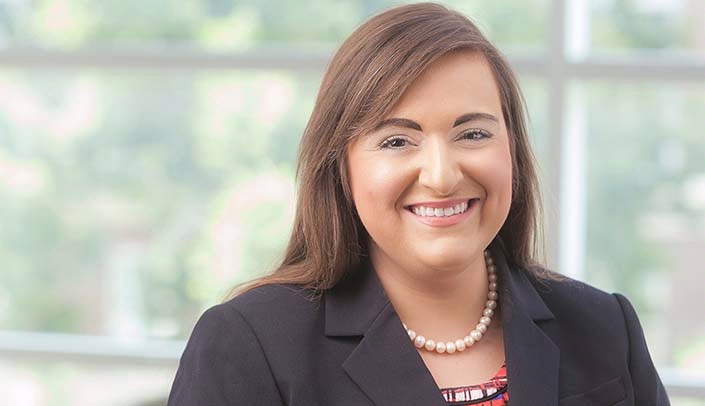A new clinical program has been established to help patients recover from the medical illness of addiction.
Addiction Services is a continuum of care providing integrated treatment for co-occurring psychiatric and substance use disorders.
“Our clinical care model is unprecedented in our institution and our state, offering comprehensive treatment of co-occurring psychiatric and substance use disorders using FDA-approved medications and evidence-based practice guidelines physically integrated with the rest of patients’ health care, right here at Nebraska Medicine,” said Alëna Balasanova, M.D., Addiction Services outpatient clinic director.
The integrated treatment model recognizes addiction for the chronic medical illness that it is and addresses its biopsychosocial components through a comprehensive set of services aimed to restore the patient to maximum functional capacity.
“By treating addiction alongside psychiatric disorders in the routine medical setting, we hope to reduce the stigma of these medical conditions and offer our patients evidence-based treatments to help reduce the morbidity and mortality of this chronic brain disease we call addiction,” Dr. Balasanova said.
The evidence-based services available at Nebraska Medicine include medication-assisted treatment (MAT) for opioid and alcohol use disorders, treatment of co-occurring psychiatric disorders according to established clinical practice guidelines, and empirical psychological interventions such as motivational interviewing and harm reduction psychotherapy.
“Historically, substance use disorder treatment has been siloed from mainstream health care due to stigma and limited understanding of the science of addiction, but we now know how addiction can ‘hijack’ the brain due to long-term brain changes caused by untreated substance use disorder,” Dr. Balasanova said.
In line with the psychiatry department-wide policy, all patients have to personally call to schedule an initial appointment. The first appointment will be a new patient orientation group session with a licensed clinical therapist. Patients will be referred for specific services after that initial visit.
“The overall goal of the orientation group is to enhance patients’ involvement in their health care and making collaborative decisions about their treatment needs,” Dr. Balasanova said. “We aim to customize individual services whenever possible to best align with a patient’s identified treatment needs.”
To find out more information, visit the Addiction Services webpage or call 800.922.0000.
